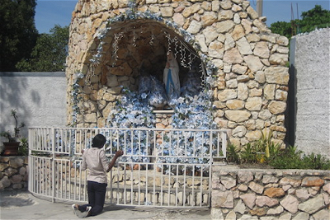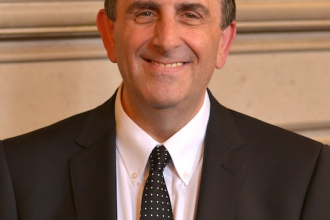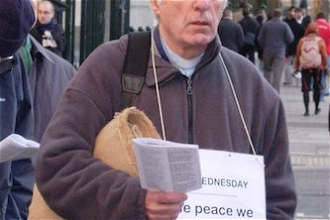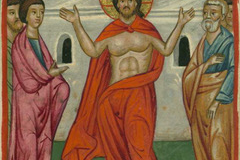Egypt crisis leading to serious shortages in Gaza
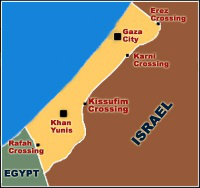
The crisis in Egypt has begun to cause serious shortages in Gaza, Caritas Jerusalem reports. Egyptian soldiers fled their posts on the northern border on 30 January, forcing the Rafah crossing, a critical supply and transit route for the 1.5 million Palestinians living in Gaza, to close.
Around 60 Palestinians, attempting to return home via Cairo when Gaza's southern border closed, are still being held in the 'deportation room' at Cairo airport. Among them are six children and several critically ill patients who are running out of medication.
"The children don't know what's happening. Sometimes they're crying. It's very, very cold here; it's crowded and there is nowhere for us to wash," one of those being detained, who asked not to be named, told IRIN.
Israel destroyed Gaza's airport during the second Intifada in 2002, and Gazans have few alternatives but to transit through Cairo airport, via Rafah.
Since the militant group Hamas took control in 2007, Gazans need special security clearance to enter Egypt. Those with permits to travel abroad are taken directly to Cairo airport by bus where they are held until their flight departs. On the return leg they are held at the airport until they can be taken to the Rafah crossing.
Israel's blockade of the region means Gaza depends heavily on goods smuggled through tunnels from Egypt - particularly fuel, cooking gas and building materials - but the ongoing instability in Egypt has caused these tunnels to close, severing a vital supply line.
"The problem is getting fuel to the border inside Egypt. There are no military forces on the Egyptian side of the border, so smugglers are getting hijacked on the road from Cairo and all their stuff stolen. It's very dangerous for them," said taxi driver Farid Abdul El Rahman, who is running his car on the last of his Egyptian diesel.
"There is nothing coming through the tunnels now - I think the problem is only going to get worse," he said. Petrol has now run out entirely and the only fuel available is the limited amount coming from Israel at treble the price.
A fuel shortage in Gaza would not only mean no cars, but also no electricity. The blockade and severe damage to power stations during the 2009 conflict resulted in a chronic power shortage with up to six hours of electricity cuts every day. Gaza's homes and businesses rely on fuel-powered generators.
The major hospitals have stockpiles of fuel to power their generators, but the biggest, Shifa Hospital in Gaza City, has less than a week's supply in reserve. If the tunnels remain closed much longer, the situation will become critical.
Mohamed Abu Rahman, a senior nurse in the intensive care unit, said he was very concerned about the border closure. "This unit, especially, is entirely dependent on electricity. If there's a power cut we have to operate the ventilators manually before the generator kicks in," he told IRIN.
"There are power cuts here for four hours every day. It will be impossible to keep people alive without our generators - the monitors, the ventilators, everything - will be gone."
For some the situation is life threatening. Gaza suffers acute shortages of crucial medical equipment and medicines, which means many people, often those with serious conditions like cancer, must be referred abroad for treatment.
Every month around 500 Gazan patients are referred to Egypt. With the Rafah crossing closed indefinitely, the UN is looking into the possibility of transferring medical cases from Gaza through Israel, although the Office for the Coordination of Humanitarian Affairs (OCHA) predicts at least 20 percent of patients will be refused on security grounds.
Bassam Abu Hamad, a senior health consultant in Gaza, warned that closure of the Rafah crossing was putting lives at risk: "People in need of radiotherapy, and advanced surgery in particular, are simply unable to get treatment," he said. "While Rafah is closed, we will see increased loss of life here in Gaza."
Source: Caritas Jerusalem/IRIN



